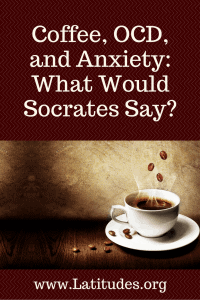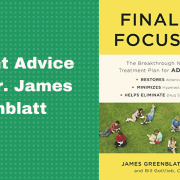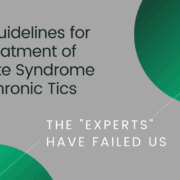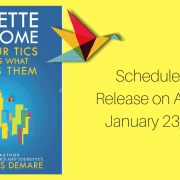Coffee, OCD, and Anxiety: What Would Socrates Say?
MATT G COLLINS
As a direct support professional working in a group home for individuals with developmental disabilities, I have seen firsthand how the public views those with disabilities. In general, people tend to separate them from us. They are disabled. We are not. But what most do not realize is that all people are disabled at one level or another. One of my disabilities is obsessive-compulsive disorder (OCD).
Disability is a relative concept. One definition Merriam-Webster gives for “disabled” is “the condition of being unable to do things in the normal way.” Of course, explaining just what “normal” is, is quite difficult. Had our species evolved to grow three arms, and you were born with only two, you would be considered disabled.
Clinical OCD is a monstrous mental health issue with severe consequences for sufferers, affecting approximately 2.3% of the population between ages 18 – 54.
OCD interferes with the ability to function in everyday life. Though the basic structure of OCD is the same for all those diagnosed with the disorder (namely, having an obsession and a consequent compulsion in an attempt to alleviate the anxiety from the obsession), the content and intensity of the obsessions and compulsions vary considerably from person to person.
One topic I tend to obsess over is what I call bug-harm OCD. This involves paying scrupulous attention to the harm I am (possibly) causing to sentient beings, including insects. While walking to work I often struggle with this obsession: As I take steps towards the home I work in I am careful not to step on insects. Sometimes I step in very awkward (some would say catatonic) positions to make sure no insects were harmed. I stop and stare at the ground so much my friends think I am a budding entomologist!
While I do advocate that we should take potential insect sentience very seriously and make a concerted effort to minimize insect suffering, I also realize that most of the time I am not stepping on insects. But as all too many OCD sufferers can relate, I have to check anyway just to make sure.
Sometimes it takes me an extra half an hour to get to work. And any time I do drive a car, any moth that flies into the headlights causes me to whip the car around even in heavy traffic to look for the insect.
Naturally, I am always looking for ways to improve this condition. Researching online one night, I found a forum about caffeine consumption and OCD symptoms. The general wisdom on that forum and elsewhere on the internet is that caffeine tends to have an anxiogenic effect on the nervous system. While the verdict is still out on whether caffeine exacerbates OCD symptoms or actually alleviates them, it seems that coffee probably does more harm than good for people with anxiety
The problem is . . . I love coffee. The boost in hedonic tone I get from a few cups of black coffee tends to override my anticipation of the anxiety and lower hedonic tone which is certain to follow in a few hours after ingestion. My thoughts race, my mood lifts, and my  energy increases. In a society where exogenous drugs are touted over the stimulation of endogenous ones, caffeine is an obvious drug of choice. Indeed, it is the most popular drug on the planet.
energy increases. In a society where exogenous drugs are touted over the stimulation of endogenous ones, caffeine is an obvious drug of choice. Indeed, it is the most popular drug on the planet.
Sometimes, it feels like coffee is the only thing that makes me happy during a flare-up of OCD. Coffee allows me to forget my difficulties for a short period. Instead of my mind flying from one fear to another like a bat zooming from one end of a dark cave to another, I can concentrate solely on my surroundings and wait on the caffeine to improve my energy and mood. For a time, my OCD seems to disappear.
But like a routine nightmare, the anxiety returns. In the search for relief from this hellish cycle, I find solace in an unexpected place . . . Western philosophy. Philosophy has a poor reputation in the minds of many. It is seen as an arcane and pointless exercise of the mind—a hobby of the rich and carefree. But some of the earliest philosophy was designed with the explicit purpose of answering the most meaningful and practical questions about reality and our place in it. For example, in Plato’s famous dialogue Protagorus, Socrates claims that no man can go towards what is bad for him willingly. He says it is impossible for a person to make a bad choice with full knowledge of the consequences, and that if one does make a poor choice (like the decision of an anxiety-prone person to drink a cup of coffee), then one lacks the knowledge to make a fully informed decision.
More specifically, he says that a person lacks the ability to count up his or her pains and pleasures over time. In other words, if I desire to experience the high from a cup of strong, black coffee, then I must take all the consequences into consideration. I must recognize the coming-up phase of the high, the plateau, and the inevitable crash. I ought to be able to hold this vision in my mind and treat each segment as equal in value. According to Socrates, if I did this, I would, and should, resist the temptation to imbibe in my daily coffee habit.
But alas, at the moment, I cannot. So I continue to reach for a tall cup of the old coffee beans, knowing full well the consequences of my actions. But hopefully, this may not always be the case.
Matt is a direct support professional at a group home for individuals with developmental disabilities in New York State.









